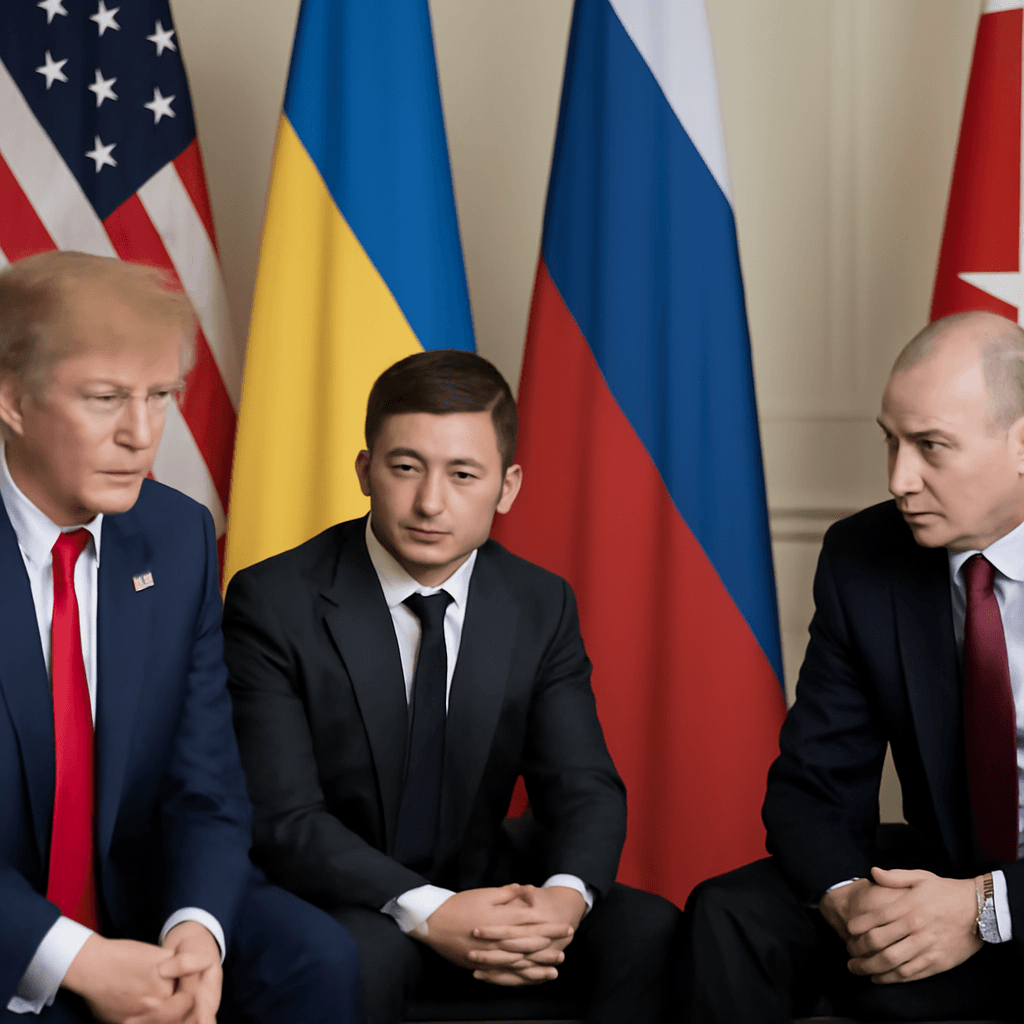Turkey Proposes Three-Way Summit to Resolve Ukraine Conflict
Turkey has extended an invitation for a trilateral peace summit involving US President Donald Trump, Ukrainian President Volodymyr Zelenskyy, and Russian President Vladimir Putin. Turkish President Recep Tayyip Erdogan expressed his intent to host the meeting in Istanbul or Ankara, aiming to facilitate dialogue that could potentially end the ongoing war in Ukraine.
Erdogan stated, "My desire is to bring Putin and Zelenskyy together in Istanbul or Ankara. Also to invite Trump to this meeting as well… We will take steps for this meeting after the latest talks."
Trump and Zelenskyy Support the Summit, Putin Remains Hesitant
President Trump has expressed willingness to participate in the proposed peace talks alongside Zelenskyy. Ukrainian leadership has also shown readiness for leader-level discussions. However, Vladimir Putin remains reluctant to engage in direct negotiations with Zelenskyy, reflecting the complex and strained nature of Russia-Ukraine relations.
Putin’s refusal stems from longstanding objections to Ukraine's sovereignty and his government's labeling of the current Ukrainian administration as illegitimate. Accepting direct talks with Zelenskyy could undermine Russia's strategic narrative and objectives.
Previous Talks Yield Limited Progress
Earlier discussions held in Istanbul, primarily addressing prisoner exchanges and the return of soldiers’ remains, failed to produce significant breakthroughs. Both sides agreed to increase the exchange of prisoners of war and bodies, but no substantive ceasefire or peace agreement was forged.
Conflict Dynamics and Political Stances
Despite criticisms from Trump towards Zelenskyy and Ukraine, Putin continues military operations against Ukraine. Ukraine has accepted multiple ceasefire proposals, whereas Russia has maintained maximalist demands and continued to reject direct leader-level talks.
It is widely believed that Russia is deliberately prolonging the conflict to strengthen its negotiating position and enforce territorial claims.
Ukrainian Response and Call for Sanctions
In response to Russia’s stance, President Zelenskyy has called for increased sanctions targeting Russia, aiming to apply greater economic and political pressure. A bipartisan movement in the United States supports imposing tougher measures, although Trump's favorable relationship with Putin could limit the implementation of stricter sanctions.
Russian Peace Terms Remain Demanding
Russia’s conditions for peace reportedly include:
- International legal recognition of Crimea and four other Ukrainian provinces annexed by Russia.
- Withdrawal of Ukrainian forces from these territories.
- Ukrainian neutrality, including a prohibition on joining NATO.
- Restrictions on Ukraine's military capabilities.
These demands continue to be a major obstacle to achieving meaningful peace negotiations.
Outlook
While the proposed summit in Turkey represents a potential opportunity for dialogue, significant challenges remain. Putin's reluctance to engage directly with Zelenskyy and the divergent demands of both sides suggest that any resolution to the conflict will require substantial diplomatic effort and compromise.

